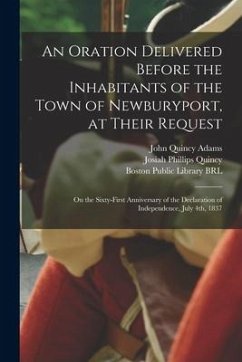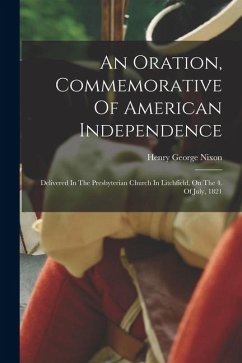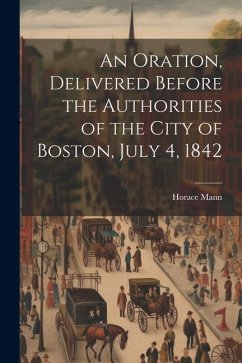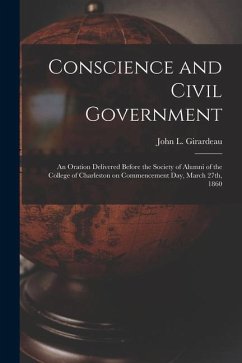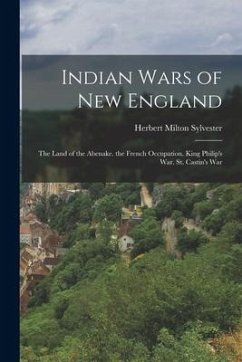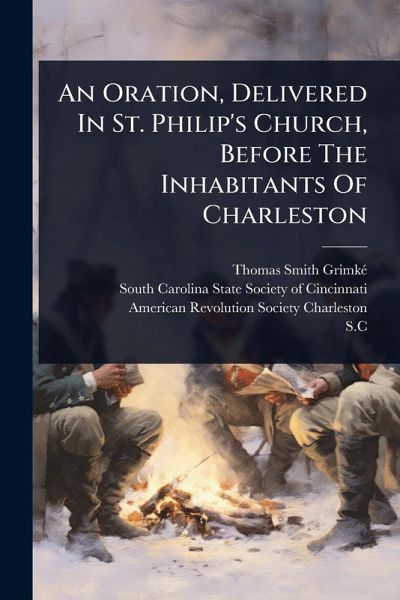
An Oration, Delivered In St. Philip's Church, Before The Inhabitants Of Charleston

PAYBACK Punkte
7 °P sammeln!
This is the published version of the oration delivered by Thomas Smith GrimkÃ(c) in St. Philip's Church, Charleston, on July 4, 1809. Commissioned by the South Carolina State Society of Cincinnati and published at the request of both that society and the American Revolution Society, the oration reflects on the significance of American independence and the principles upon which the nation was founded. GrimkÃ(c)'s speech offers insights into the early American understanding of liberty, civic duty, and the legacy of the Revolution. It provides a valuable perspective on the social and political ...
This is the published version of the oration delivered by Thomas Smith GrimkÃ(c) in St. Philip's Church, Charleston, on July 4, 1809. Commissioned by the South Carolina State Society of Cincinnati and published at the request of both that society and the American Revolution Society, the oration reflects on the significance of American independence and the principles upon which the nation was founded. GrimkÃ(c)'s speech offers insights into the early American understanding of liberty, civic duty, and the legacy of the Revolution. It provides a valuable perspective on the social and political climate of the early 19th century in South Carolina and the ongoing efforts to define and uphold the ideals of the new republic. This historical document offers a glimpse into the patriotic sentiments and intellectual discourse of the era. This work has been selected by scholars as being culturally important, and is part of the knowledge base of civilization as we know it. This work was reproduced from the original artifact, and remains as true to the original work as possible. Therefore, you will see the original copyright references, library stamps (as most of these works have been housed in our most important libraries around the world), and other notations in the work. This work is in the public domain in the United States of America, and possibly other nations. Within the United States, you may freely copy and distribute this work, as no entity (individual or corporate) has a copyright on the body of the work. As a reproduction of a historical artifact, this work may contain missing or blurred pages, poor pictures, errant marks, etc. Scholars believe, and we concur, that this work is important enough to be preserved, reproduced, and made generally available to the public. We appreciate your support of the preservation process, and thank you for being an important part of keeping this knowledge alive and relevant.




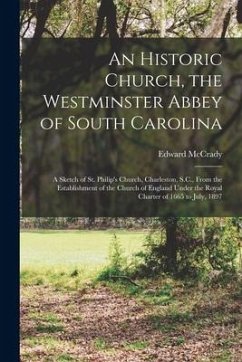
![The Vision of the Pilgrim Fathers [microform]: an Oration, Spoken Before the New England Society of Montreal, in the American Presbyterian Church, on Cover The Vision of the Pilgrim Fathers [microform]: an Oration, Spoken Before the New England Society of Montreal, in the American Presbyterian Church, on](https://bilder.buecher.de/produkte/66/66184/66184109n.jpg)
